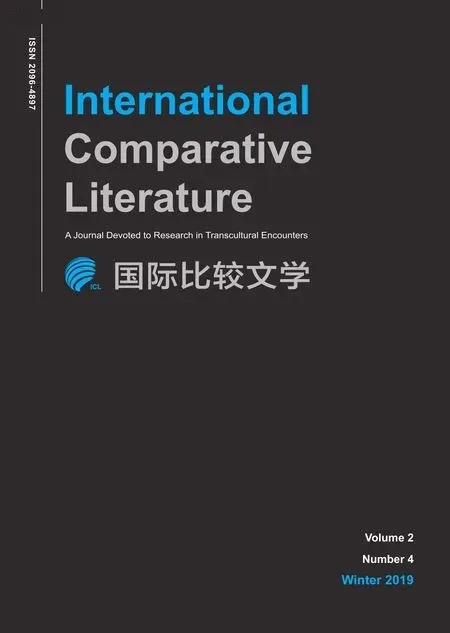WANG Xiaoping.Contending for the“ Chinese Modern”: The Writing of Fiction in the Great Transformative Epoch of Modern China 1937-1949.
Contending for the“Chinese Modern”
is a welcome addition to the growing publications on modern Chinese fiction in English.In a way,it is a long-awaited book because,for one,no comprehensive book-length work on Chinese fiction in the critical period of 1937-1949,to the best of my knowledge,has been published in English;and more importantly,current discussion of modern Chinese fiction in English is dominated by what I would call“redemptive modern”discourses that try to writehistory
out of discussion.Therefore,the author’s call for“historicization”is especially inspiring.The work coheres internally.It is not a collection of loosely connected essays,but rather has a very specific focus——as the title clearly states,to examine the“Chinese modern,”——and a very clear tripartite structure,each part discussing fiction writing in the Nationalistcontrolled area,the Communist-dominated region,and the Japaneseoccupied districts (before 1945) respectively.In each part,specific case studies are preceded by an introduction,which also explores theoretical issues pertaining to the problematic of the modernization of Chinese literature.The author’s resolute turn to a political and historical analysis via Fredric Jameson and other Marxian theorists brings to us an understanding of the“Chinese modern”that is more in dialogue with the West than simply following the modernism that came into being in the specific socio-political conjuncture in the West.
The author shows an excellent familiarity with current discussions of modern Chinese fiction in both English and Chinese.The review of secondary literature is very comprehensive.This manuscript cites appropriate sources,provides proper credit to existing work on the topic,and dynamically interacts with recent scholarship.However,the biggest contribution of this manuscript to the field of modern Chinese fiction studies,as I mentioned,is the way in which ithistoricizes
orpoliticizes
the reading of Chinese fiction,as Chinese writers from different areas contended for the“Chinese modern”via disparate approaches.Although the historicization of literary analysis or the pursuit of an alternative modernity are not altogether novel in studies of Chinese literature,the book nevertheless meets an urgent need,as the field has been dominated by discourses of non-historicized modernism for a long time.In this sense,this manuscript contributes greatly to current academic debates and offers a voice that definitely needs to be heard.While the length of the manuscript is commensurate with the scope of discussion and what it contributes,still,the manuscript could be a little more concise.Particularly,the author’s theoretical engagement with the works of critics,such as those of David Der-Wei Wang,while important,could be condensed.In addition,some of the introductory arguments are repetitive and could be streamlined.Overall,this manuscript has informed and improved our understanding of existing empirical and theoretical knowledge of modern Chinese literature,and will be a timely contribution to current studies of Chinese literature.

